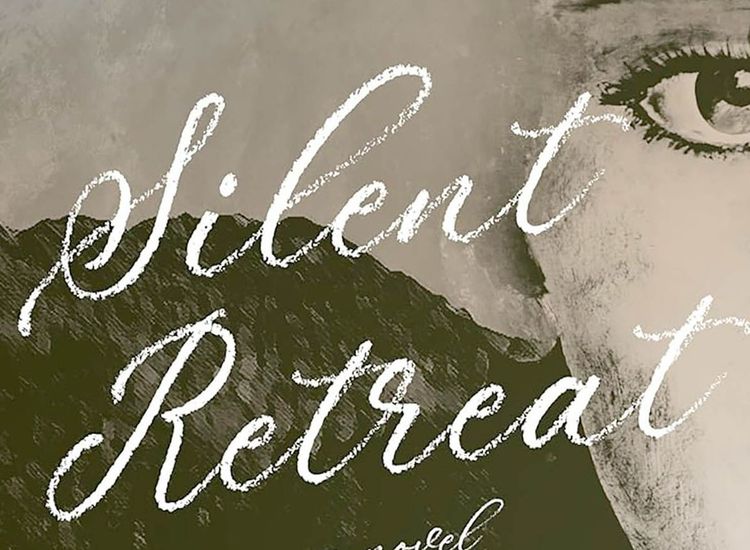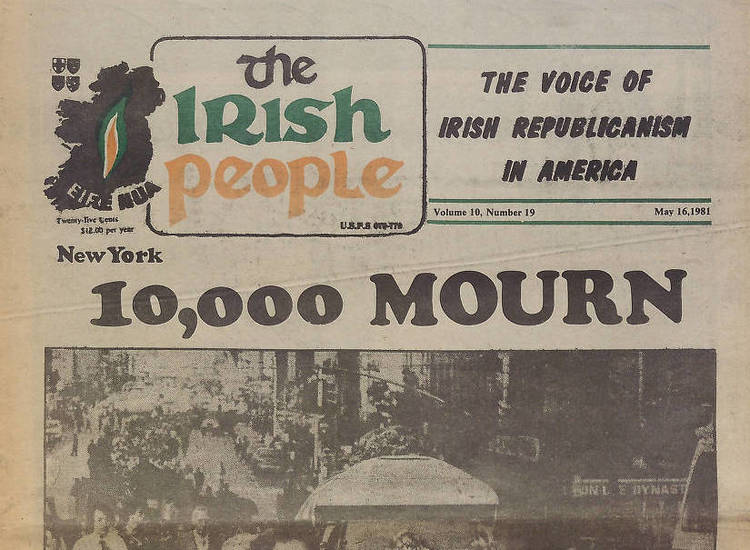Stuart Bailie.
Page Turner / Edited by Peter McDermott
The Irish Times said that Stuart Bailie’s latest book “is based around a premise so simple yet persuasive it feels like a book that should have always existed. A comprehensive history of the music that soundtracked the Troubles, the project primarily focuses on the 30-year period of turbulence between the late 1960s and the Good Friday Agreement, a time when rock and pop artists – especially Northern Irish ones – were at their most socially and politically engaged.”
But we let the author himself describe the book. “‘Trouble Songs: Music and Conflict in Northern Ireland’ follows the songs and the musicians into the darkest times of the North,” he said. “It remembers the folk ballads, the punk records and the anthems that led us into the ceasefire and beyond. It also digs into the related work of John Lennon, The Pogues, The Cranberries and Elvis Costello. I interviewed 60 participants and Bono wrote me a chapter. The book is the soundtrack to my life, especially the punk years.”
One of the characters written about is Billy McBurney. He ran Outlet Records and, as Bailie told the Times, “did all these dodgy kick-the-Pope and up-the-Ra records, and then you find out that he wrote ‘Up Went Nelson’ (an Irish chart-topper for the Go Lucky Four) and put out this incredible folk music. He and Terri Hooley and various other people are carved out of that same resolute granite.”
Larry Kirwan writing in the Echo recently was intrigued by McBurney. “His nickname, ironically, was ‘Lucky’ though he was shot by Loyalists, blown up by the Provos, and dispatched to Long Kesh by the Brits, where he continued to assiduously operate his eclectic and successful record label.”
The book wasn’t easy to get off the ground, but Bailie was definitely the man to do it. Here’s a taste of his resume: “My work has appeared in NME, Mojo, The Times, The Mirror, The Irish Times and Hot Press. I was Assistant Editor of NME, 1992-96. I have presented a weekly BBC Radio Ulster show since 1999. I was co-founder and original CEO of the Oh Yeah Music Centre – a Belfast resource for musicians, entrepreneurs, music tourism and outreach.”
The result is, according to Kirwan, “in its own soulful way, one of the finest books written on the Troubles in Northern Ireland.”
Stuart Bailie
Date of birth: July 5 1961
Place of birth: Belfast
Residence: Belfast
Published works:
“Trouble Songs: Music and Conflict in Northern Ireland” (2018); “The Ballad of the Thin Man: the authorized story of Phil Lynott and Thin Lizzy,” (1997).
What is your writing routine? Are there ideal conditions?
I like a tight deadline. Most of the book was written in a four month fever of overnight sessions. Not great for the health, but I love the fierce concentration that visits me around 2 a.m.
What advice do you have for aspiring writers?
It’s mostly about getting your hustle on. About being useful, reliable and having some flair and suss. I moved to London in 1985 and pestered the music press. New Musical Express was my chosen home. It was full of eccentrics who expected you to be curious about the world and to cut your own groove.
Name three books that are memorable in terms of your reading pleasure.
“Milkman” by Anna Burns gives voice to a deep layer of grief and stress in the Belfast story. Mesmeric stuff.
I read “Train Dreams” by Denis Johnson by on the Amtrak from Seattle to Portland and I was moved by the sad essence of a life in the old West.
“Just Kids” by Patti Smith is everything you want it to be: artists finding their legendary voices plus shenanigans at the Chelsea Hotel.
What book are you currently reading?
I’m reading “Louis Armstrong: An American Genius” by James Lincoln Collier while listening to his Hot Five recordings. What a life and a legacy.
Is there a book you wish you had written?
Greil Marcus writes brilliantly about music and “Mystery Train” is all bravura and insight.
Name a book that you were pleasantly surprised by.
“Sweet Home” by Wendy Erskine is a great debut. Her short stories about Belfast are understated but rich in meaning and intent.
If you could meet one author, living or dead, who would it be?
Imagine meeting Ernest Hemingway around the time of “A Moveable Feast.” Hanging out with Gertrude Stein and F. Scott Fitzgerald in jazz age Paris and watching him scribble fine sentences in Les Deux Magots.
What book changed your life?
Tom Wolfe edited “The New Journalism,” a series of magazine articles from America’s golden age of periodical writing. His introduction is a crash course for bold writers. I love the pizazz and the spadework of Tom Wolfe’s own work.
What is your favorite spot in Ireland?
I’ve had glorious moments in Donegal, especially around Gweedore. I’m friendly with the group Clannad and that was my introduction. I wrote an early section of my book in a cottage and I did a good Gael Linn language course there also. The smell of the turf and a view over the Atlantic amounts to special joy.
You're Irish if...
If you feel inclined to ramble but you’re lonesome when you get there. I was often homesick on my London years but I’d play “Astral Weeks” by Van Morrison and get transported back to East Belfast. Magical.









